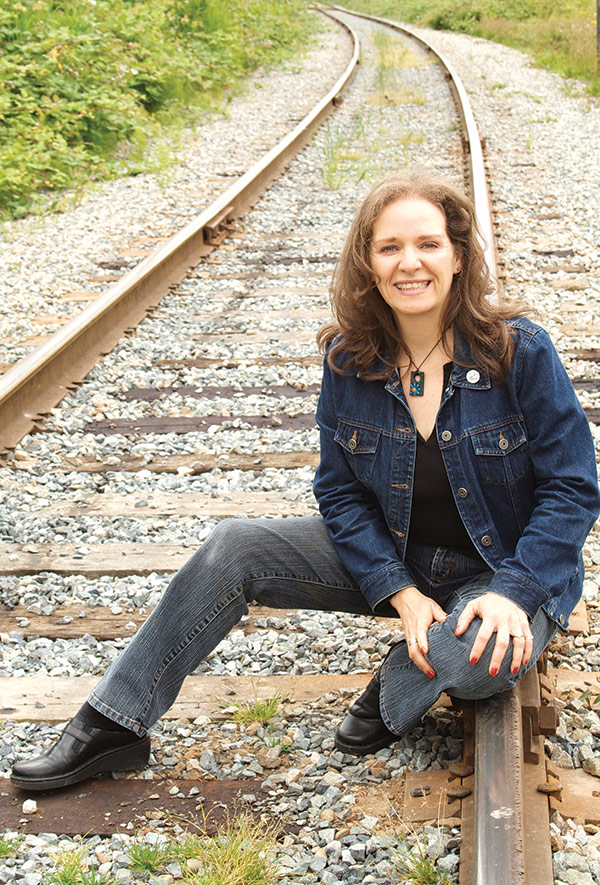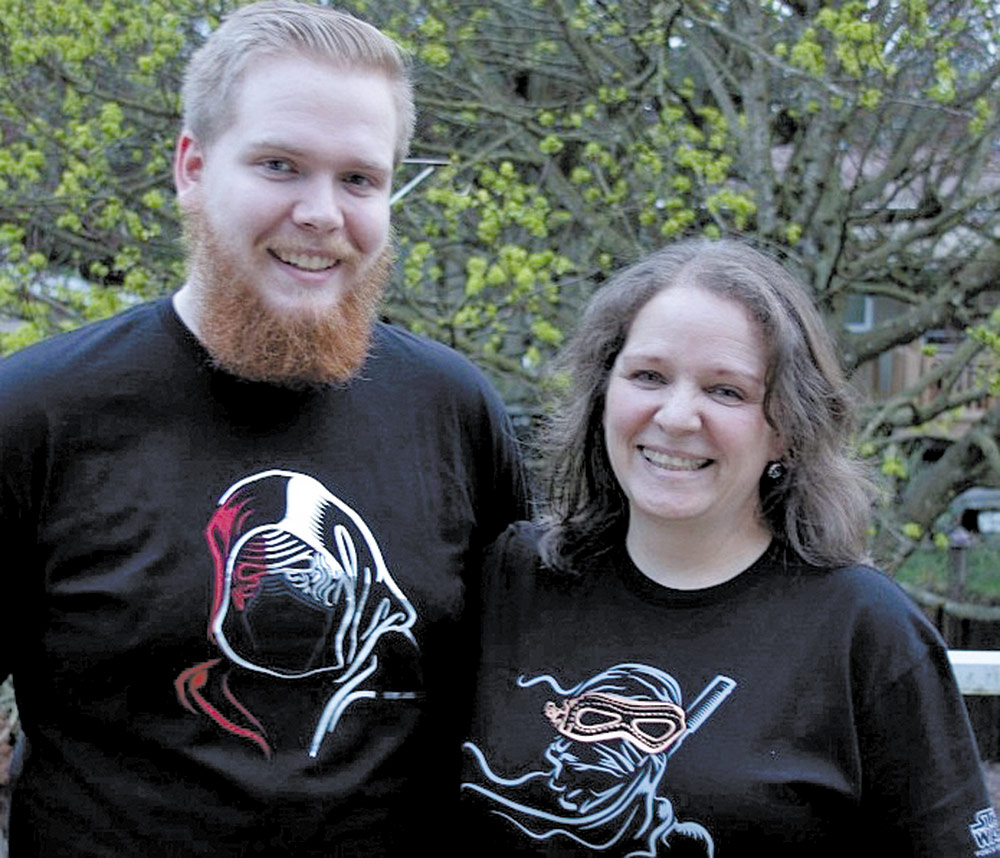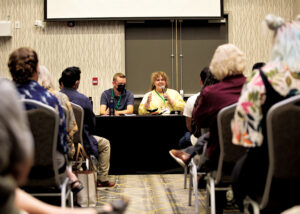A lot has been said and written about millennials: What’s wrong with them? What’s influenced them? What does their future hold?
Google “millennials and the church” and dozens of articles pop up: “5 things millennials wish the church would be,” “12 reasons why millennials are over church,” or “Is Christianity dark enough for millennials?” So much hand-wringing and wondering why our young adults are leaving the church, like this is something that’s never happened before.
Canadian Mennonite published a feature focussing on millennials who are quite content in the church (“10 under 30,” Jan. 16, page 4), and it was an inspiring read. Still, it made me wonder if there was going to be a follow-up article about millennials who are discontented with the church. Well, here it is, sort of. Unlike that story, this isn’t about a group of dissatisfied millennials from across the country. It’s the story about one: my son.
Aaron is 25 years old, born towards the end of the timeframe that typically categorizes this generation. He is our only child. My husband John and I are both Christians and have both been involved in pastoral ministry, camp ministry and lay leadership in the various churches we have attended. To a large extent, Aaron grew up in a fairly traditional Christian home. He went to secular schools and so has had friends both within and outside the church. He grew up going to Sunday school, summer camp and youth group. He played guitar on music teams, and was involved in youth leadership and in summer ministries trips.
But when he graduated from high school, things began to change. About a year ago, he decided he didn’t want to attend church anymore. As his parent, this made me somewhat sad, but I didn’t fret about it too much. Every generation of young adults is somewhat dissatisfied with their parents’ institutions. It was that way with me, I reasoned, so why should it be any different for my son?
As he and I talked about faith and church, I realized that there were, indeed, similarities in our experiences but some significant differences as well. When I was a young adult, I naively viewed my parent’s generation as lacking passion. I saw them simply going through the motions, hanging on to tradition for tradition’s sake. In some people, I saw blatant hypocrisy. Aaron expresses these views as well. The difference between us is that I never walked away from my faith in God and I sought to change the church from within. Church was still important to me, but I wanted it to look different. Aaron’s experience has been the opposite.
Aaron recognizes that, in some significant ways, his church experience has been positive. He’s had opportunities to develop leadership skills and have some interesting ministry experiences. He’s also developed some long-lasting relationships.
“I think the best thing that I got from church is a network of friends, some who also went to high school with me,” he says.
But when asked if his discontent with the church happened gradually or if he could pinpoint a moment, he didn’t hesitate. “I can tell you exactly the moment,” he says. “It was when my youth pastor resigned.”
It was the summer of 2010. He had just graduated from high school and come back from an excellent summer ministries trip to Los Angeles, Calif. Given that the trip was such a good experience and there had been no indication that anything was wrong, the announcement came as a shock. But more impactful for Aaron was the realization over time that his church was a place where hurtful things could happen, where relationships could be broken and where trust could be eroded.
His growing awareness of the way things worked in his own church and in the wider church community left him with an increasing number of questions. He questioned the process of baptism, for example.
“The Bible says ‘believe and be baptized,’ not ‘believe, go to baptism classes, then give your testimony to the deacons and then the church, and then you can be baptized.’ So why do we do that?” he asks.
Recent conversations in Mennonite Church B.C. around the inclusion of the LGBTQ community leave him shaking his head, asking why we’re still talking about this. In his mind—and in the minds of many of his friends—we should accept same-sex relationships and just move on to more important issues, like addressing human rights, injustice, racism and poverty.
“In the last couple of years, I’ve been embarrassed to tell people that I went to church or was a Christian,” he says. “I knew that if I identified that way, people might assume that I am judgmental or racist or holier than thou—the exact opposite of what you’d expect people to think of Christians if we actually lived by the book we say we live our lives by.”
As I listen to my son talk, I’m realizing that my husband and I “created this monster,” as the saying goes. Don’t misunderstand me. We love our son deeply and we are proud of the young man he has become. He’s not perfect, of course; he does bear some of the traits with which millennials have been branded, like a certain sense of entitlement and a bit of a lazy streak that I could do without. But we love his sharp sense of humour and his creative nature. He is a loyal friend and a devoted “uncle” to his cousin’s son. And as we talk, I’m amazed again at the depth with which he thinks about things.
He doesn’t understand my amazement. “You and dad raised me to be an independent thinker, to come to my own conclusions. I’m my own person,” he says.
I have to accept this, of course, because it’s true. When he was a child, we always said we wanted to raise him to be a person who could think for himself, who would make good choices. Of course, when he started to do that, I realized that what I really wanted was for him to make the choices that I would make for him. But I can’t have it both ways.
Aaron doesn’t fault John and me for choosing to live out our faith in the context of the church. He hasn’t cut other people out of his life simply because they go to church and he knows that his friends don’t judge him because he doesn’t. He understands that our church community is important to us; it just isn’t important to him anymore. Since he’s stopped going to church, he hasn’t missed it and feels like he doesn’t need it. He’s not alone in this feeling; several of his friends have expressed the same frustrations and some have also stopped attending.
Aaron’s questions run deeper than simple church politics. He’s not sure if he really believes in God and says he’s never experienced God’s presence or profound answers to prayer. Still, he’s a big fan of Jesus. He loves Jesus’ teachings and the way he interacted with people.
“Maybe if we could all just live like Jesus taught—love your neighbour, don’t steal, don’t lie, don’t be a jerk—I think the whole world would just be a better place,” he says.
I can’t argue with that. In fact, there’s a lot that I can’t argue with. I, too, am dismayed by hypocrisy, judgmental attitudes and exclusion. I wish the world would judge Christians by their good works and not by their failures. I have also been deeply hurt by experiences in the church and have sometimes wondered why I stay. But I have stayed because, in the end, unlike Aaron, I find that it does matter to me. This is my tribe, warts and all. Unlike Aaron, I have had profound answers to prayer and I experience the presence of God all the time.
And suddenly I’m hit by a memory. Me, twenty-something-years-old, crying out in prayer to God, seeking direction for my life, asking, “Where are you?” It was a moment of deep, spiritual crisis when I wondered if there really was a God or if the faith to which I clung was actually empty nonsense.
So maybe Aaron and I are not all that different. I think that the difference in our age and life experiences impacts how we respond to church. One might think that, as a parent, I would be terribly concerned about my son’s “lack” of engagement with church or with God but, in fact, I’m not. He is not flippant about this, he gives it great thought, and I believe he continues to be open to possibilities. What I do know for certain is that we are both still on a journey, and as long as we can continue to have these deep conversations I know that we will influence one another on the way. For that, I am truly grateful.
Angelika Dawson lives, writes and practises her faith in Abbotsford, B.C.
See also:
On engaging millenials
Spaces of trust










Leave a Reply
You must be logged in to post a comment.